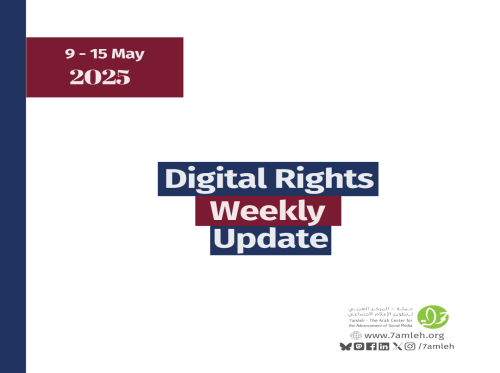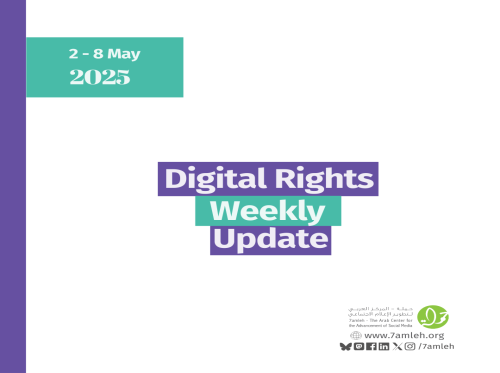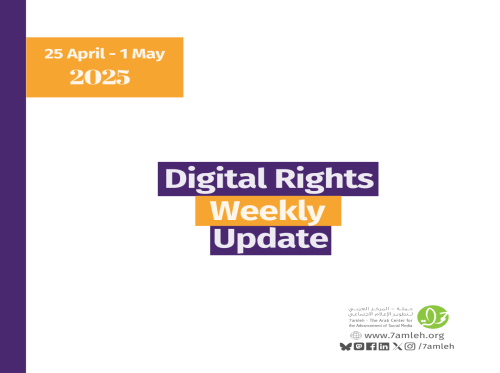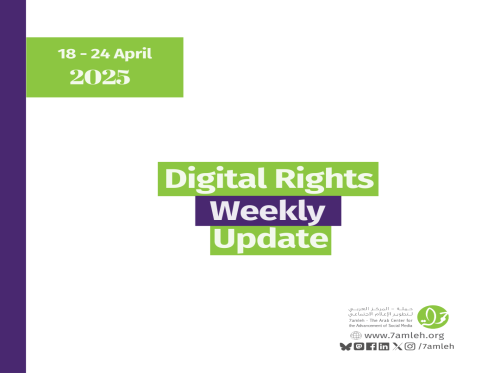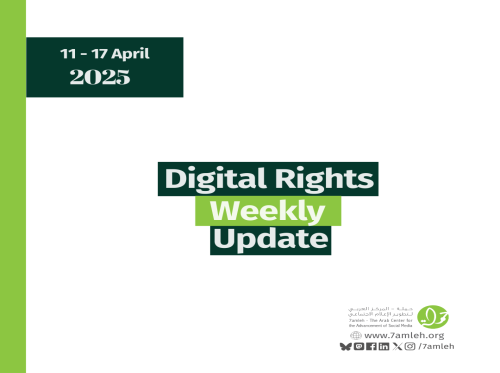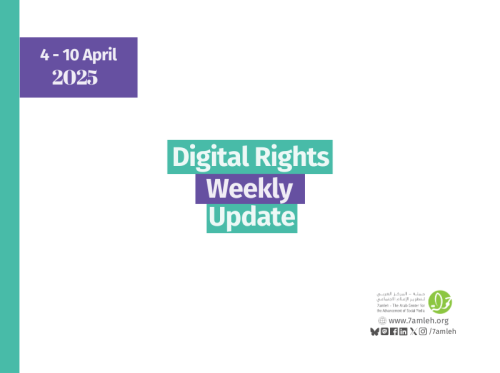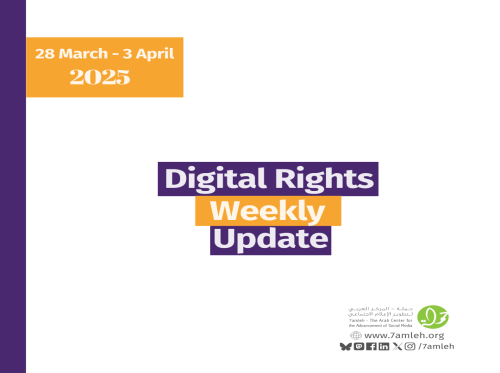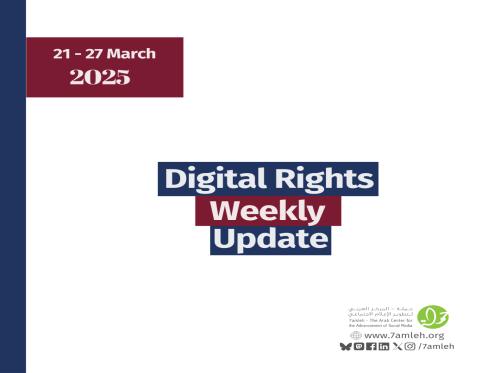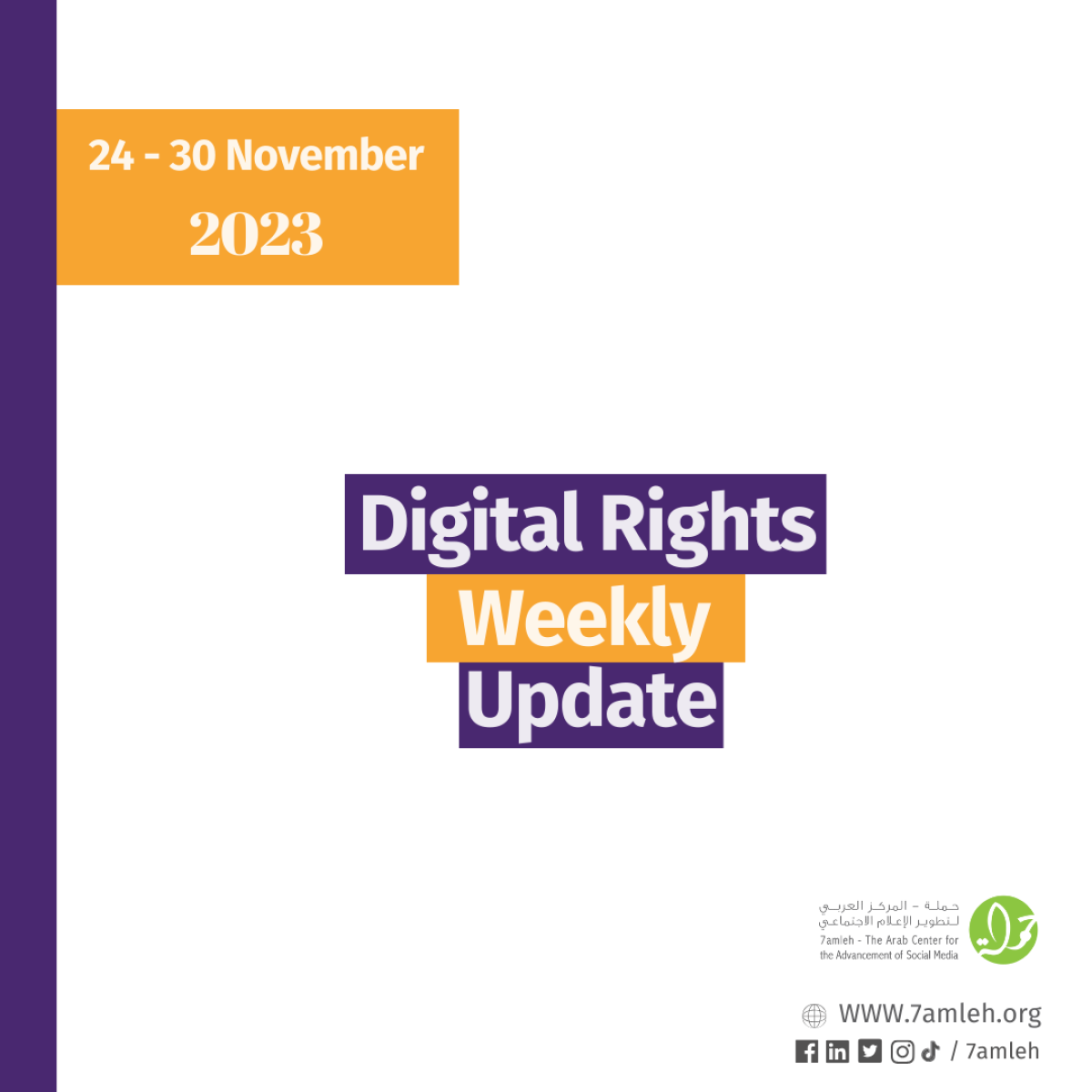
1.
Ads Endorsing ‘Holocaust’ Against Palestinians Get Green Light On Facebook (English)
Digital Room
Facebook recently came under scrutiny for approving ads endorsing violence and genocide against Palestinians, as reported by The Intercept. These ads, featuring explicit calls for violence, managed to bypass Facebook’s content moderation filters, sparking concerns about the platform’s policies. Nadim Nashif, founder of the Palestinian advocacy group 7amleh, pointed out Meta’s consistent failures in addressing issues affecting the Palestinian community. Speaking to The Intercept, Nashif expressed worries about Meta’s bias and discrimination against Palestinians, citing the approval of controversial ads as a notable example.
2.
Israel’s ‘thought police’ law ramps up dangers for Palestinian social media users (English)
+972 Magazine
Emergency wartime regulations, introduced by the Attorney General’s office and the National Security Committee, have given Israeli police and other security bodies expansive and unchecked powers. Amid a spike in arrests, indictments, suspensions, and job terminations, many Palestinians have stopped using social media altogether, deleted news and messaging apps, and started turning off their phones while socializing for fear of being surveilled. Now, the stakes of using technology have been raised even higher.
3.
Don’t Stop to Think! How Our Digital Habits Feed Israel-Palestine Disinfo (English)
Mother Jones
Social media has a lot of advantages. We have easier access to global information—previously, you couldn’t get information from conflict areas. In cases of authoritarian regimes, it allows you to have a variety of different information—we can see the differences between what we get from state actors vs. what we get from the ground. In the Arab Spring, we saw a change in tactical information: You see people using English postcards and English signs. That is a clear sign that they want to reach more than just their territorial language borders—they want to reach a global audience. Social media facilitates this.
4.
The Palestine Laboratory' exposes how Israel exports the technology of occupation around the world (English)
Green Left
In The Palestine Laboratory, Walkley Award-winning Australian-Jewish journalist Antony Loewenstein details how Israel uses occupied Palestinian territories as a testing ground for developing tools of oppression, before selling them around the world. Loewenstein’s book is a brilliant piece of investigative work, bringing together mountains of research and interviews, which lays bare the relationship between Israel’s brutal oppression of Palestinians and their booming arms industry.
5.
Tracking lost pro-Palestinian posts (English)
Columbia Journalism Review
In the weeks since October 7, when Hamas attacked Israeli civilians, and during the bombardment and invasion of Gaza that followed, people across social media have complained about posts in support of Palestinians being restricted or removed. There have been some high-profile examples: Facebook took down the English and Arabic pages of Quds News Network, known for sharing graphic crowdsourced videos. Press outlets have also reported on individual accounts sharing relatively innocuous material—a Palestinian-flag emoji, for instance—getting dinged as “potentially offensive.” Al Jazeera, the Wall Street Journal, The Guardian, and The Intercept all found that posts and accounts have been taken down or seen their reach limited. Whether that amounts to a coordinated attempt at silencing has been difficult to prove.
Related Articles
Subscribe to Our Email Alerts
And stay updated with our latest activities, news, and publications!

